479. Once again. Glyph number 192 can
be idenified with right ascension day 80 + 192 = 272
(= 2 * 136), the day after Porrima (*191):
|
Delta (→ 4) |
δ Andromedae |
8.4 |
March 29 (88) |
0 |
|
|
Eta (→ 7)
|
η Phoenicis |
9.4 |
March 30 |
1 |
|
|
η Andromedae |
11.4 |
April 1 (91) |
3 |
|
|
Gamma (→ 3) |
Cih (Whip) (γ Cassiopeiai) |
12.4 |
April 2 (92) |
4 |
|
|
1 |
Al Sharatain |
Pair of Signs |
β Arietis (Sheratan),
γ (Mesarthim) |
27.4 |
April 17 (107) |
19 |
|
|
Musca Borealis |
35 (Head of the Fly), 39
(Kaffaljidhma), and
41 Arietis (Bharani) |
41.4 |
May 1 (121) |
33 |
0 |
|
2 |
Al Dabarān |
Follower |
α Tauri (Aldebaran), θ¹, θ²´,
γ (Hyadum I),
δ (Hyadum II), ε (Ain) |
63.4 |
May 23 (143) |
55 |
22 |
|
3 |
Al Hak'ah |
White Spot |
λ
Orionis (Heka),
φ¹,
φ² |
83.4 |
June 12 (163) |
75 |
42 |
|
4 |
Al Han'ah |
Brand |
γ Gemini (Alhena), μ (Tejat
Posterior), ν,
η (Tejat Prior),
ξ (Alzirr) |
93.4 |
June 22 (173) |
85 |
52 |
|
5 |
Al Dhirā' |
Forearm |
α Gemini (Castor),
β (Pollux) |
113.4 |
July 12 (193) |
105 |
72 |
|
6 |
Al Nathrah |
Gap |
ε Cancri (Beehive) |
130.4 |
July 29 (210) |
123 |
90 |
|
7 |
Al Tarf |
End |
ξ
Cancri,
λ
Leonis (Alterf) |
143.4 |
Aug 11 (223) |
135 |
102 |
|
8 |
Al Jabhah |
Forehead |
η Leonis (Al Jabhah),
α (Regulus), ζ (Adhafera), γ
(Algieba) |
152.4 |
Aug 20 (232) |
144 |
111 |
|
9 |
Al Zubrah |
Mane |
δ
Leonis (Zosma),
θ
(Coxa) |
169.4 |
Sept 6 (249) |
161 |
128 |
|
10 |
Al Sarfah |
Turn |
β Leonis (Denebola) |
178.3 |
Sept 15 (258) |
170 |
137 |
|
11 |
Al Áwwā' |
Barker |
β (Alaraph), η (Zaniah),
γ (Porrima),
δ (Minelauva), ε Virginis
(Vindemiatrix) |
191.5 |
Sept 28 (271) |
161
+ 22 |
150 |
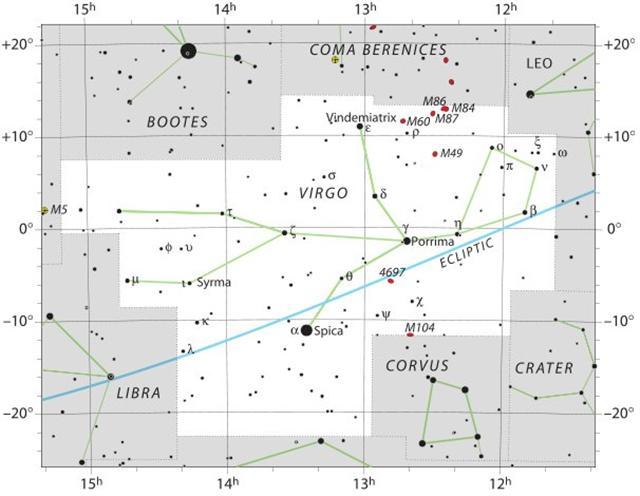
|
393 + 349 =
742
= 1½ * 366 + 193 |
|
174 |
157 |
136 |
200 |
75 |
= 742 |
|
348 |
314 |
272 |
400 |
150 |
= 1484 |
|
*268 |
*234 |
*192 |
*320 |
*70 |
= *1000 + *84 |
|
522 |
471 |
408 |
600 |
225 |
= 2226 |
|
2226 = 1½ * 1484 |
|
no glyph |
koia |
ki te hoea |
ki te
henua |
te rima te
hau tea |
haga i te
mea ke |
ki te
henua - tagata honui |
|
Hoe.
Hoe
1. Paddle. Mgv.: hoe,
ohe, id. Mq., Ta.:
hoe, id. 2. To wheeze
with fatigue (oeoe
2). Arero oeoe, to
stammer, to stutter; Mgv.
oe, to make a whistling
sound in breathing; ohe,
a cry from a person out of
breath. Mq.: oe, to
wheeze with fatigue. 3.
Blade, knife; hoe
hakaiu, clasp-knife,
jack-knife; hoe hakanemu,
clasp-knife; hoe pikopiko,
pruning knife. 4. Ta.:
oheohe, a plant. Ma.:
kohekohe, id.
Churchill.T. Paddle. E
hoe te heiva = 'and to
paddle (was their)
pleasure'. Henry. Hoea,
instrument for tattooing.
Barthel. |
 |
 |
 |
 |
 |
 |
|
Ca1-1 |
Ca1-2 |
Ca1-3 |
Ca1-4 |
Ca1-5 |
Ca1-6 |
|
CLOSE TO THE FULL MOON: |
|
March 21 (80)
Al Fargh al Thāni-25 (Rear
Spout)
0h (365.25)
CAPH (Hand) =
β
Cassiopeiae,
SIRRAH (Navel of the Horse)
=
α
Andromedae
(0.5),
ε
Phoenicis,
γ³
Oct.
(0.8) |
22
Uttara Bhādrapadā-27 (2nd of
the Blessed Feet) /
Wall-14 (Porcupine)
ο Oct. (1.3),
ALGENIB PEGASI = γ Pegasi
(1.8) |
23
χ Pegasi (2.1), θ Andromedae
(2.7) |
24
σ Andromedae (3.0), ι Ceti
(3.3), ζ Tucanae (3.5), ρ
Andromedae, π Tucanae (3.7) |
Julian equinox
no star listed (4) |
26 (85 = 185 - 100)
ANKAA = α Phoenicis,
κ Phoenicis (5.0)
ALPHARD (α Hydrae)
|
27
λ Phoenicis (6.3), β Tucanae
(6.4)
45.0 = 86.4 - 41.4 |
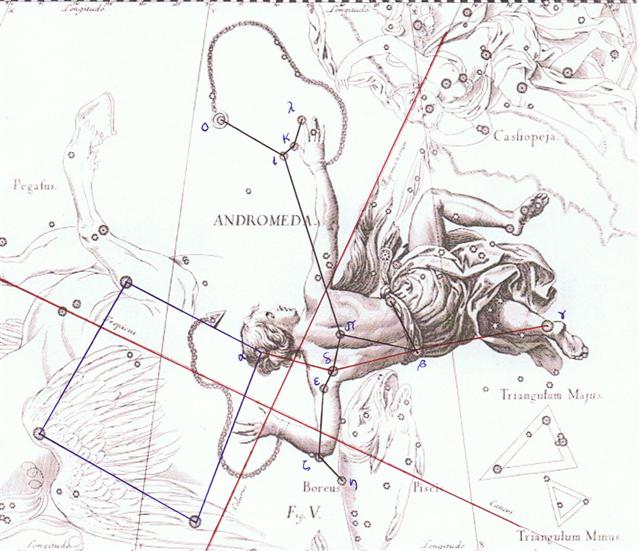 |
|
CLOSE TO THE SUN: |
|
Sept 20 (263) |
21 |
Equinox |
23 |
24 |
25 |
26 |
|
ALCHITA = α Corvi,
MA WEI (Tail of the Horse) =
δ Centauri
(183.1),
MINKAR = ε Corvi
(183.7), ρ Centauri (183.9) |
PÁLIDA (Pale)
=
δ
Crucis
(184.6),
MEGREZ (Root of the Tail) =
δ
Ursae Majoris
(184.9) |
Hasta-13 (Hand) /
Chariot-28 (Worm)
GIENAH (Wing)
=
γ
Corvi
(185.1),
ε
Muscae (185.2),
ζ
Crucis (185.4),
ZANIAH (Corner) = η Virginis
(185.9)
*144.0 = *185.4 - *41.4 |
CHANG SHA (Long Sand-bank) =
ζ Corvi
(186.3) |
INTROMETIDA
(Inserted) =
ε
Crucis
(187.4),
ACRUX =
α
Crucis
(187.5)
*146.0 = *187.4 - *41.4 |
γ
Com. Berenicis (188.0),
σ
Centauri (188.1),
ALGORAB =
δ
Corvi
(188.5),
GACRUX =
γ
Crucis
(188.7) |
γ
Muscae (189.0),
AVIS SATYRA
(Bird of the Satyrs) =
η
Corvi
(189.3),
ASTERION (Starry) =
β
Canum Ven.
(189.5),
KRAZ = β
Corvi,
κ Draconis (189.7) |

... Raven gazed up and down
the beach. It was pretty,
but lifeless. There was no
one about to upset, or play
tricks upon. Raven sighed.
He crossed his wings behind
him and strutted up and down
the sand, his shiny head
cocked, his sharp eyes and
ears alert for any unusual
sight or sound. The
mountains and the sea, the
sky now ablaze with the sun
by day and the moon and
stars he had placed there,
it was all pretty, but
lifeless. Finally Raven
cried out to the empty sky
with a loud exasperated cry.
And before the echoes of his
cry faded from the shore, he
heard a muffled squeak. He
looked up and down the beach
for its source and saw
nothing. He strutted back
and and forth, once, twice,
three times and still saw
nothing. Then he spied a
flash of white in the sand.
There, half buried in the
sand was a giant clamshell.
As his shadow fell upon it,
he heard another muffled
squeak. Peering down into
the opening between the
halves of the shell, he saw
it was full of tiny
creatures, cowering in fear
at his shadow ... |
|
178 |
tagata - marama |
tagata |
kua moe |
puhi te ahi - rave
i te ika |
|
Puhi. 1.
To blow; to light a fire; to
extinguish, to blow out; he-puhi
te umu, to light the fire for
the earth oven. 2. To fish for
lobsters at night using a bait (but
during the day one calls it hî);
puhiga, night fishing spot.
Vanaga. To blow; puhi mai, to
spring up; pupuhi, wind, fan,
to blow, puffed up, to blow fresh,
to ferment, to swell, to bloat, to
spring out, to gush, yeast;
pupuhi vai, syringe; pupuhi
eve, squirt; pupuhi heenua,
volley; pupuhi nunui, cannon;
pupuhi nui, swivel gun;
ahuahu pupuhi, amplitude; vai
pupuhi, water which gushes
forth; pupuhihia, to carry on
the wind; hakapupuhi, to
gush, leaven, volatilize;
puhipuhi, to smoke, to smoke
tobacco, a pipe. Churchill. |
 |
 |
 |
 |
|
Maharu
Ca7-17 |
Ohua
Ca7-18 (186) |
Otua
Ca7-19 |
- |
|
Ca7-20 |
|
Haru.
Haruharu. To rob, to steal, to
arrest, to seize, to cling, to grasp
unexpectedly, to take by force;
robber (aruaru, aaru).
Pau.: haru, to extort, to
carry off, to usurp. Ta.: haru,
robber, to seize by force.
Churchill.
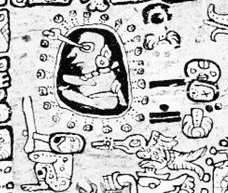
|
Rob |
Fruit |
Back |
|
Mohalu |
Hua |
Akua |
|
Maharu
|
Ohua
|
Otua
|
|
W |
Z |
H |
 |
|
CLOSE TO THE FULL MOON: |
|
Equinox
Hasta-13 (Hand) /
Chariot-28 (Worm)
GIENAH (Wing) =
γ
Corvi
(185.1),
ε
Muscae (185.2),
ζ
Crucis (185.4),
ZANIAH (Corner) = η Virginis
(185.9)
*144.0 = *185.4 - *41.4 |
Sept 23 (266)
CHANG
SHA (Long Sand-bank) = ζ Corvi
(186.3)
45 + 180 = 225 = 266 - 41 |
24
INTROMETIDA
(Inserted) =
ε
Crucis
(187.4),
ACRUX =
α
Crucis
(187.5)
*146.0 = *187.4 - *41.4 |
25
γ
Com. Berenicis (188.0),
σ
Centauri (188.1),
ALGORAB =
δ
Corvi
(188.5),
GACRUX =
γ
|
|
CLOSE TO THE SUN: |
|
March 23 |
24 (266 - 183 = 83) |
25
(Julian equinox) |
26 |
|
χ Pegasi (2.1), θ Andromedae (2.7) |
σ Andromedae (3.0), ι Ceti (3.3), ζ
Tucanae (3.5), ρ Andromedae, π
Tucanae (3.7) |
no star
listed (4) |
ANKAA = α Phoenicis,
κ Phoenicis (5.0)
ALPHARD
(α Hydrae)
|
|
te kava - erua
marama |
e marama noho
i tona nohoga |
te hare pure e
tagata noho ki roto |
|
Hare.
House, family,
home. Vanaga. House, cabin,
habitation, building, hut,
structure; hare iti, hut;
hare itiiti no,
cabin; hare kahu, tent;
hare neinei, latrine;
hare no iti, cell; hare
nunui, palace; hare
pohurihuri, prison; hare
pure, chapel, church; ki
te hare, at home.
Harepepe, kelp. Harepiko,
a. asylum, place of refuge; b.
ambush, snare. Harepopo,
shed. Harepopokai,
storehouse. Churchill.
Pure.
Cowrie (Cypraea caput
draconis); pure vaka,
another type of cowrie, which
can float on the sea like a
diminutive boat (vaka).
Vanaga. 1. To pray, to
supplicate, invocation, prayer;
hare pure, church,
chapel; tae pure,
irreverence; purega,
prayer P Pau., Mgv., Mq., Ta.:
pure, to pray. In Samoa,
Tonga, Niuē,
Futuna, Uvea, pule
means to command. 2. A
shell T. P Pau.: hakapurepure,
to dye, to color. Mq.: pué,
the porcelain shell. Ta.:
pure, a mark. Purepure,
spotted, dappled; ragi
purepure, dappled sky.
Purepurea, spotted. P Pau.:
hakapurepure, to dye, to
color. Mgv.: purepure,
printed cloth; akapurepure,
to paint in different colors.
Mq.: puépué, covered with
pale scars. Ta.: purepure,
spotted, dappled. Churchill.
Pureva,
rock, stone (small enough to be
thrown by hand). Vanaga.
Pureva, to throw a
stone. Ta.:
Pureva, to be on the
eve of going. Ha.:
puleva, to float here
and there. Churchill. Pau.:
Pure-hiva, a butterfly.
Mgv.: pure-rehue, id.
Ta.: pure-hua, a moth.
Mq.: pure-hua, id. Ma.:
pure-hua, id. Churchill. |
 |
 |
 |
 |
|
Maúre
Ca7-21 |
Ina-ira
Ca7-22 → π |
Rakau
Ca7-23 → 216 = 3 / 5 * 365 |
Omotohi
Ca7-24 (192) |
|
Sept 26 |
27 (270) |
28 |
29 (2 * 136) |
|
CLOSE TO THE FULL MOON: |
|
γ
Muscae (189.0),
AVIS SATYRA (Bird
of the Satyrs) =
η
Corvi
(189.3),
ASTERION (Starry) =
β
Canum Ven.
(189.5),
KRAZ = β Corvi,
κ Draconis (189.7) |
α Muscae (190.2), τ Centauri
(190.5), χ Virginis (190.7)
ALDERAMIN (α Cephei)
|
Al Áwwā'-11 (The Barker) /
Shur-mahrū-shirū-18 (Front or
West Shur)
Sombrero Galaxy = M104 Virginis
(191.1),
ρ
Virginis (191.4),
PORRIMA =
γ
Virginis,
γ
Centauri (191.5)
*150.0 = *191.4 - *41.4
104 = 31 + (365 - 292) |
ι Crucis (192.2), β Muscae
(192.5),
MIMOSA = β Crucis
(192.9) |
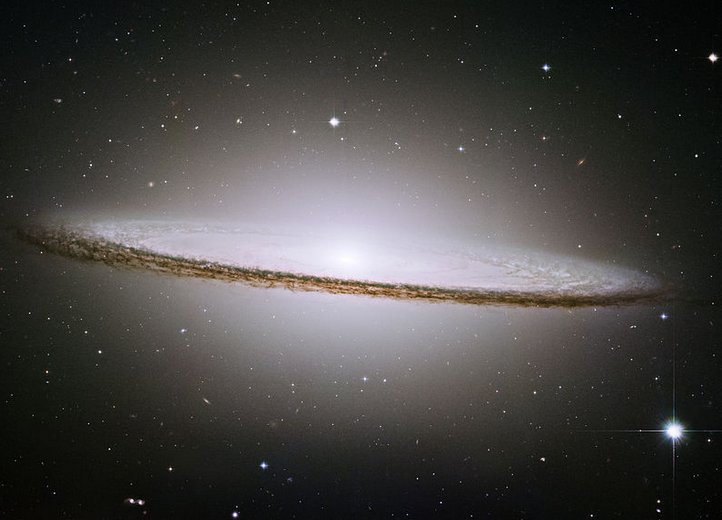
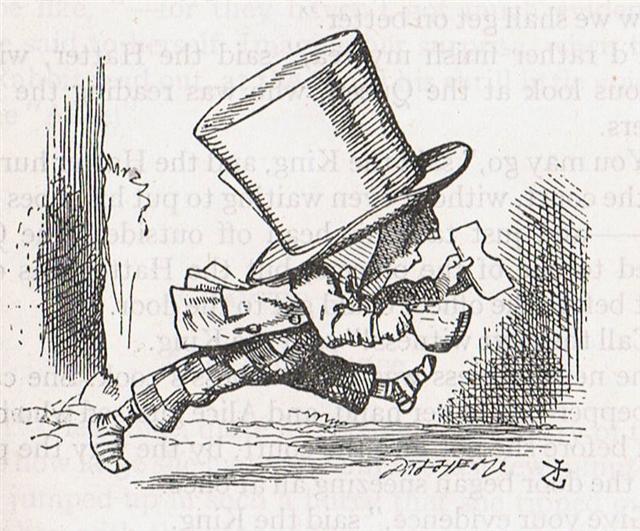 |
|
... The Sensitive plant (Mimosa
pudica L.) is a creeping
annual or perennial herb often
grown for its curiosity value:
the compound leaves fold inward
and droop when touched,
re-opening within minutes.
Mimosa pudica is native to
Brazil, but is now a pantropical
weed. Other names given to this
curious plant are Humble plant,
TickleMe plant, Shame plant,
Sleeping Grass, Prayer plant,
Touch-me-not, Makahiya
(Philippines, meaning 'shy'),
Mori Vivi (West Indies),
mate-loi (false death)
(Tonga) ... In the evening the
leaflets will fold together and
the whole leaf droops downward.
It then re-opens at sunrise
...
Rau
hei.
1. Branch of mimosa. 2. Killed
enemy. 3. Hanged 'fish'. 'Branche
du mimosa (signe de mort),
ennemie túe (poisson suspendu)'
according to Jaussen. Barthel. |
|
CLOSE TO THE SUN: |
|
λ Phoenicis (6.3), β Tucanae
(6.4)
45.0 = 86.4 - 41.4 |
ANDROMEDA GALAXY (M31),
π Andromedae (7.7)
31 = 104 - (365 - 292) |
ε Andromedae (8.2),
DELTA = δ Andromedae
(8.4),
SCHEDIR (Breast)
= α Cassiopeiae
(8.6), ζ Andromedae, μ Phoenicis
(8.9)
*333 = *150 + *183 |
ξ
Phoenicis (9.0),
ρ
Tucanae (9.1),
DENEB KAITOS
(Tail of the Sea Beast) = β Ceti,
η
Phoenicis (9.4),
AL NITHĀM (String of Pearls) =
φ¹
Ceti
(9.6)
*334 = *375.4 - *41.4 |
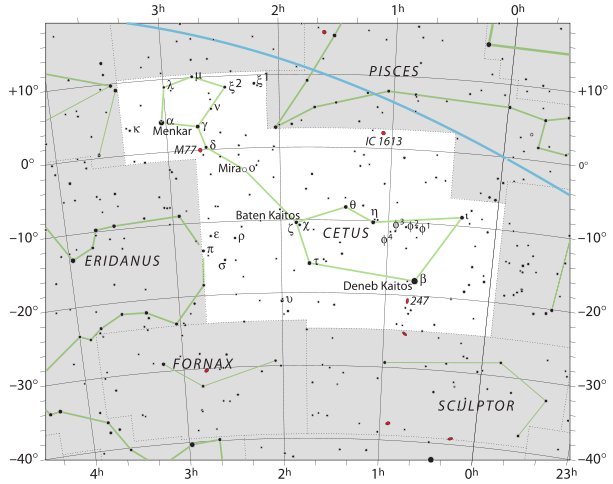 |
... In the morning of the world, there
was nothing but water. The Loon was
calling, and the old man who at that
time bore the Raven's name,
Nangkilstlas, asked her why. 'The
gods are homeless', the Loon replied.
'I'll see to it', said the old man,
without moving from the fire in his
house on the floor of the sea. Then as
the old man continued to lie by his
fire, the Raven flew over the sea. The
clouds broke. He flew upward, drove his
beak into the sky and scrambled over the
rim to the upper world. There he
discovered a town, and in one of the
houses a woman had just given birth.
The Raven stole the skin and form of the
newborn child. Then he began to cry for
solid food, but he was offered only
mother's milk ...
|
Egyptian house |
 |
Phoenician beth |
 |
Greek beta |
Β (β) |
|
... Like the
names of most other Greek
letters, the name of beta
was adopted from the
acrophonic name of the
corresponding letter in
Phoenician, which was the
common Semitic word *bayt
('house'). In the system of
Greek numerals beta
had a value of 2.
... 'The traditions show
that the residences of the
king were fairly flexible.
The building of new houses
was obviously the result of
(male) births in the royal
family. In each case, the
house that was built last is
left to the newborn son and
his mother, together with a
specific servant, while the
king has a new and separate
residence constructed for
himself
...
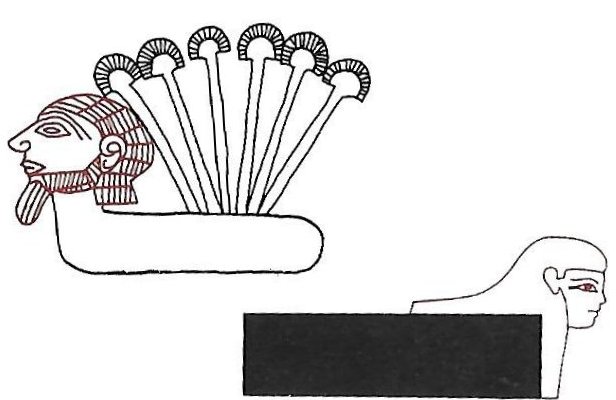 |
Porrima (272) - 129 days = day 143 (May
23), when the Sun rose together with γ Hyadum (at
the Follower, Al Dabarān) in
the day after the Egg (Hua):
|
JAN 19 |
20 |
21 (101 - 80) |
22 → Mercury |
|
MARCH 17 (76 = 140 - 64) |
18 |
19 |
20 (79 = 22 + 3 * 19) |
 |
 |
 |
 |
|
Ca3-9 |
Ca3-10 |
Ca3-11 |
Ca3-12 (63 = 7 * 9) |
|
tapamea
tagata kua iri |
ki te pa |
kua hua |
ki te
kotiga |
|
Hua.
1.
Testicle. 2. Figuratively:
son, hua tahi, only
son; fruits of the earth; to
grow well (of fruits). 3. To
cause a fight, a quarrel.
Hua-ai, generation, as
lineage of direct
descendents;
contemporaries. Huahua,
coccyx of bird,
'parson's nose': huahua
moa, huahua uha.
Huataru, a
creeper (Chenopodium
ambiguum). Vanaga. 1.
The same; ki hua,
again, to continue, to
strain, to struggle, to
move, to repeat, over and
above. Mq.: hua, the
same, to return, to
recommence. 2. To bloom, to
sprout; flower, fruit (huaa);
huaa tae oko, huaa
vahio, young fruit;
hua atahi, only son;
huahaga, fruit; mei
te huahaga o tokoe kopu,
the fruit of thy body;
tikea huahaga, deceptive
appearance. P Pau.: ua,
to be born; huahaga,
lineage. Mgv.: hua,
to produce (said of trees,
grain, etc.), blooming time
of flowers, abundance of
fruit. Mq.: hua, to
produce, to bear fruit. Ta.:
ua, to sprout.
Huahua. 1. Tailless
fowl. 2. Vein, tendon, line.
3. Mgv.: huahua,
pimples covering the face.
Ta.: huahua, id. Mq.:
hua, tubercules. Sa.:
fuafua, abscess on
hand or feet. Ma.: huahua,
small pimples. Pau.:
Hua-gakau, rupture. Ta.:
áau, entrails. Sa.:
ga'au, id. Ma.:
ngakau, id. Churchill.
1. Fruit. 2. Egg. 3. Tā
hua = 'genealogical
writing' or 'same writing'.
Fischer.
.jpg) |
|
CLOSE TO THE FULL MOON: |
|
May 20 (140)
4h (60.9)
JĪSHUĬ (Piled-up Waters) =
λ
Persei
(60.7)
COR CAROLI (α Canum Ven.)
|
21
First 3-stone Place
υ (48) Persei
(61.2) |
22 (21 + 121 = 142)
BEID (Egg) =
ο¹
Eridani
(62.2),
μ
Persei (62.8)
VINDEMIATRIX ( ε Virginis) |
23 (11 * 13 = 143)
Al Dabarān-2 (The Follower)
HYADUM I = γ Tauri
(63.4)
*22 = *63.4 - *41.4 |
|
"April 9 (140 - 41 = 99) |
10 (100) |
11 (*21) |
12 |
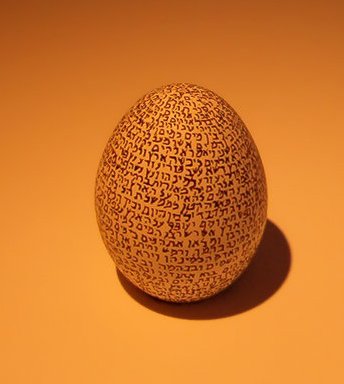 |
|
CLOSE TO THE SUN: |
|
Nov 19 (140 + 183 = 323)
16h (243.5)
ACRAB (Scorpion) = β
Scorpii, JABHAT AL ACRAB
(Forehead of the Scorpion) =
ω Scorpii
(243.3), θ Lupi,
RUTILICUS = β Herculis
(243.5),
MARFIK (Elbow) = κ Herculis
(243.7), φ Herculis (243.8)
|
20
ψ
Scorpii (244.6),
LESATH (Sting) =
ν
Scorpii
(244.8) |
21 (*245)
χ
Scorpii (245.1),
YED PRIOR
(Hand in Front) =
δ
Ophiuchi,
δ
Tr.
Austr. (245.5) |
22
YED POSTERIOR
(Hand Behind) =
ε
Ophiuchi,
RUKBALGETHI SHEMALI
(Northern Knee of the Giant)
=
τ
Herculis
(246.6).
δ
Apodis (246.7),
ο
Scorpii (246.8) |
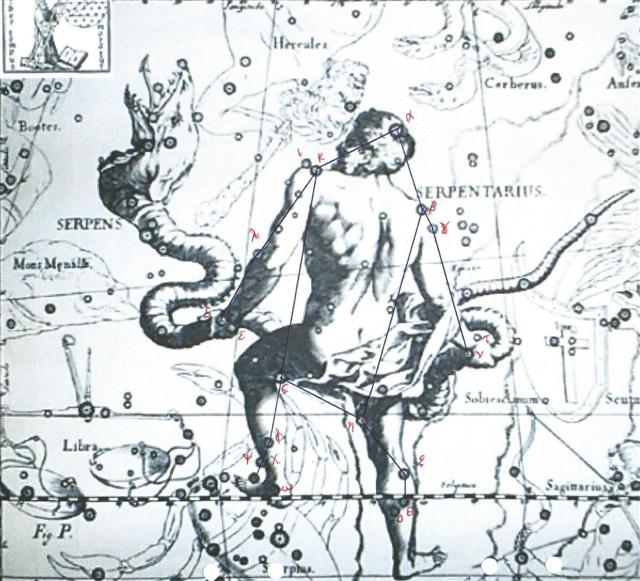 |
|
Throwing stick? |
 |
Phoenician
gimel |
 |
Greek gamma |
Γ
(γ) |
|
... In
its unattested
Proto-Canaanite form,
the letter [gimel]
may have been named
after a weapon that was
either a staff sling or
a throwing stick,
ultimately deriving from
a Proto-Sinaitic glyph
... Bertrand Russell
posits that the letter's
form is a
conventionalized image
of a camel. The letter
may be the shape of the
walking animal's head,
neck, and forelegs [cfr
the way Taurus normally
is depicted]. Barry B.
Powell, a specialist in
the history of writing,
states 'It is hard to
imagine how gimel
= 'camel' can be derived
from the picture of a
camel ... The word
gimel is related to
gemul, which
means 'justified
repayment', or the
giving of reward and
punishment.
The
Swedish word gammal
means 'old' (and dry
like a stick).
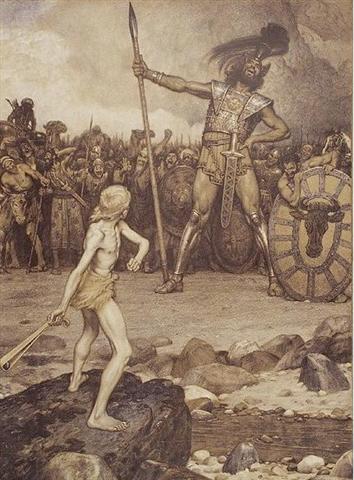 |
According to my interpretation of
the G text the beginning of its
regular year was not at Ga1-1 but at
heliacal Aldebaran, and counting 5
and a fraction of a right ascension
day back in time we will arrive at
Beid. This fraction could therefore correspond
to the empty glyph space at the
beginning of side a.
|
2-27 (73 - 15) |
2-28 |
3-1 (60) |
3-2 |
3-3 |
3-4 |
3-5 |
|
MARCH 14 (73) |
15 |
(365 + 75 = 440) |
17 |
18 |
19 |
20 (*364) |
 |
 |
 |
 |
 |
 |
 |
|
Gb8-24 |
Gb8-25 (466) |
Gb8-26 |
Gb8-27 |
Gb8-28 |
Gb8-29 |
Gb8-30 (242) |
|
MENKHIB (Next to
the Pleiades = ζ
Persei
(57.6)
PORRIMA (γ
Virginis)
|
ZAURAK (The
Boat) = γ
Eridani
(58.9) |
λ Tauri (59.3),
ν Tauri (59.9) |
4h (60.9)
JĪSHUĬ = λ
Persei
(60.7)
COR CAROLI (α
Canum Ven.)
|
First 3-stone Place
υ (48)
Persei
(61.2) |
BEID (Egg) = ο¹
Eridani
(62.2), μ Persei
(62.8)
VINDEMIATRIX ( ε
Virginis) |
Al Dabarān-2
(The Follower)
HYADUM I = γ
Tauri
(63.4) |
|
May 17 (137) |
18 (*58) |
19 (*424) |
20 |
21 |
22 |
23 (*428) |
|
°May 13 |
14 (*54) |
15 (*420) |
16 (136) |
17 |
18 (*58) |
19 (*424) |
|
'April 20 |
21 (111) |
22 |
23 |
24 |
25 (*400) |
26 (*36) |
|
"April 6 |
7 |
8 |
9 (464) |
10 (100) |
11 |
12 (*22) |
|
CLOSE TO THE
FULL MOON: |
|
λ Librae
(240.0), β Tr.
Austr. (240.3),
κ Tr. Austr.
(240.4), ρ
Scorpii (240.8) |
Iklīl al
Jabhah-15 (Crown
of the Forehead)
/
Anuradha-17
(Following
Rādhā) /
Room-4 (Hare)
ξ Lupi, λ Cor.
Bor.(241.1),
ZHENG = γ
Serpentis,
θ Librae
(241.2),
VRISCHIKA = π
Scorpii
(241.3), ε Cor.
Borealis
(241.5),
DSCHUBBA (Front
of Forehead) = δ
Scorpii
(241.7), η Lupi
(241.9) |
υ Herculis
(242.3), ρ Cor.
Borealis
(242.4), ι Cor.
Borealis
(242.5), θ
Draconis
(242.6), ξ
Scorpii (242.7)
SCHEDIR (α
Cassiopeiae)
|
16h (243.5)
ACRAB (Scorpion)
= β Scorpii,
JABHAT AL ACRAB
(Forehead of the
Scorpion) = ω
Scorpii
(243.3), θ Lupi,
RUTILICUS = β
Herculis
(243.5),
MARFIK (Elbow) =
κ Herculis
(243.7), φ
Herculis (243.8)
|
ψ Scorpii
(244.6),
LESATH (Sting) =
ν Scorpii
(244.8) |
χ Scorpii
(245.1),
YED PRIOR (Hand
in Front) = δ
Ophiuchi,
δ Tr. Austr.
(245.5) |
YED POSTERIOR
(Hand Behind) =
ε Ophiuchi,
RUKBALGETHI
SHEMALI (Knee,
rukbah, of
Broken
Palm-branch) =
τ Herculis
(246.6).
δ Apodis
(246.7), ο
Scorpii (246.8) |
|
Lesath was a
name both for ν
(*244) and for υ
(*264) Scorpii,
and there were
20 right
ascension days
from ν to υ.
... Upsilon
(uppercase Υ,
lowercase υ;
Greek: ύψιλον,
ýpsilon ... is
the 20th letter
of the Greek
alphabet. In the
system of Greek
numerals, Υ has
a value of 400.
It is derived
from the
Phoenician waw
... Waw (wāw
'hook') is the
sixth letter of
the Semitic
abjads ...
|
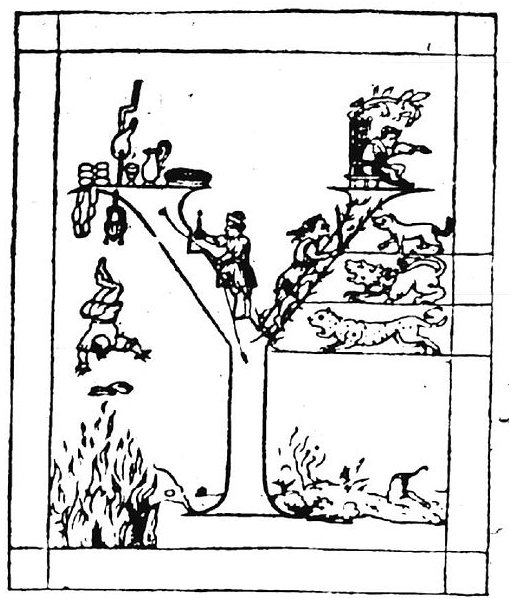
...
Upsilon
is
known
as
Pythagoras'
letter,
or
the
Samian
letter,
because Pythagoras
used
it
as
an
emblem
of
the
path
of
virtue
or
vice
... |
|
Hora
Iti
29
(241) |
46 |
Tangaroa
Uri
15
(288) |
14 |
30
(264
+
39) |
|
SPICA
(202) |
ANTARES
(288
-
39) |
LESATH
(264) |
|
48 |
15 |
|
9
weeks |
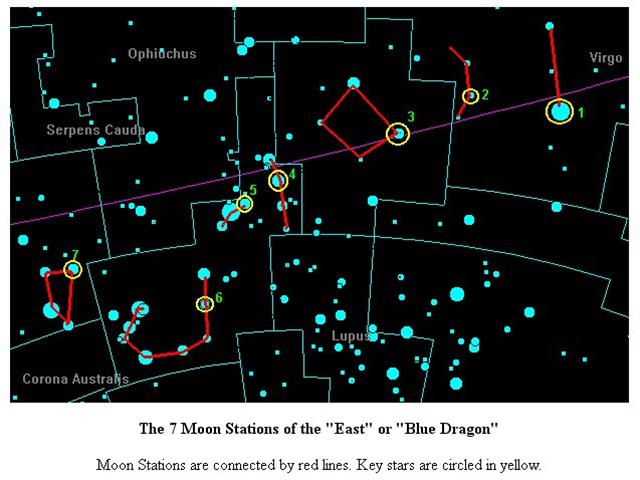
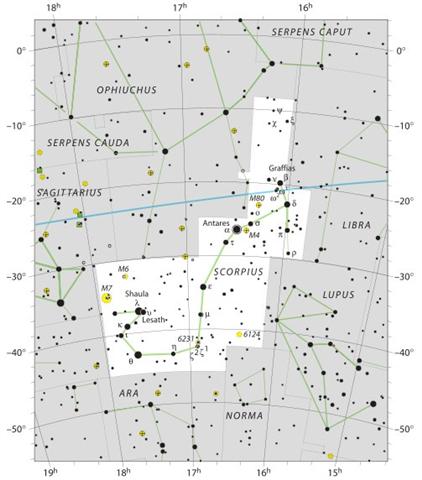
|
|
Nov 16 |
17 |
18 (*242) |
19 |
20 |
21 |
22 (326) |
|
°Nov 12 (*236) |
13 |
14 |
15 |
16 (*240) |
17 |
18 (322) |
|
'Oct 20 |
21 (*214) |
22 (295) |
23 |
24 |
25 |
26 (299) |
|
"Oct 6 |
7 (*200) |
8 |
9 |
10 |
11 |
12 (285) |
|
SEPT 13 |
14 (*177) |
15 |
16 |
(260 = 244 + 16) |
18 |
19 |
|
8-29 |
8-30 |
8-31 |
9-1 |
(245 = 260 - 15) |
9-3 |
9-4 |
|
CLOSE TO THE SUN: |
|
0h (445 - 80 = *365) |
MARCH 22 (*1) |
23 (82) |
|
no glyph |
 |
 |
|
Ga1-1 (= 65 - 64) |
Ga1-2 |
|
HYADUM II = δ¹ Tauri
(64.2) |
Net-19 (Crow)
AIN (Eye) = ε Tauri,
θ¹ Tauri, θ² Tauri
(65.7) |
no star listed (66) |
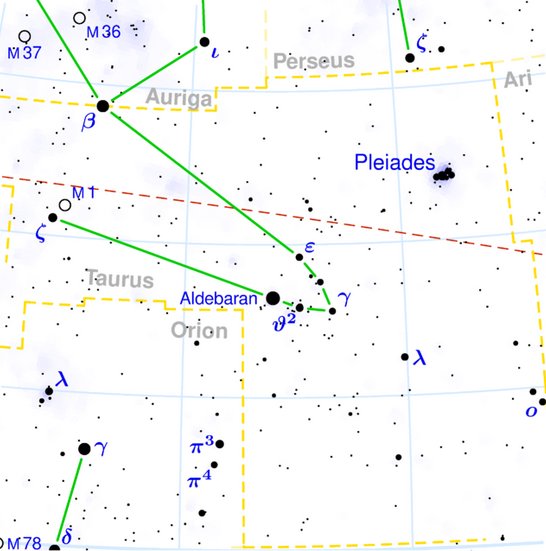 |
|
May 24 |
25 (145 = 290 / 2) |
26 (*66) |
|
'April 27 |
28 (118 = 4 * 29½) |
29 (*39) |
|
"April 13 |
14 (104 = 8 * 13) |
15 (*25) |
|
CLOSE TO THE
SUN: |
|
MARCH 24 |
JULIAN EQUINOX |
26 (*5) |
27 |
 |
 |
 |
 |
|
Ga1-3 |
Ga1-4 |
Ga1-5 |
Ga1-6 |
|
no star listed
(67) |
Rohini-4 (The
Red One) /
Pidnu-sha-Shame-4
(Furrow of
Heaven)
/
ANA-MURI-2 (Rear
pillar - at the
foot of which
was the place
for tattooing)
ALDEBARAN = α
Tauri
(68.2),
THEEMIN = υ²
Eridani
(68.5) |
no star listed
(69) |
no star listed
(70) |
|
May 27 |
28 (148) |
29 |
30 (*70) |
|
°May 23 |
24 (144) |
25 (*65) |
26 |
|
'April 30 |
'May 1 (121) |
2 (*42) |
3 |
|
16 (471) |
"April 17 (107) |
18 (*28) |
19 |
|
Itzam-Yeh
(7-Macaw,
Ursa
Major)
defeated |
28 May,
3149 BC
(148) |
|
First
3-stone
place |
21 May,
3114 BC
(141) |
|
Creation
of our
present
world |
13 Aug,
3114 BC
(225) |
|
Hun-Nal-Ye
became
the sky |
5 Febr,
3112 BC
(36) |
|
21 May,
3114 BC
- 13
August,
3114 BC
= 225 -
141 = 84
(= 12 *
7)
21 May,
3114 BC
-
5
February,
3112 BC
=
542,
which
'happens
to be'
the sum
of 365
days and
6 * 29½
nights.
At
the time
of
rongorongo
the day
May 28
(148,
*68) was
where
Aldebaran
rose
with the
Sun and
77 days
later,
in
August
13 (225,
*145)
the Sun
had
reached
the Knot
(Ukdah)
with the
Full
Moon at
the
Foundation
(Bunda).
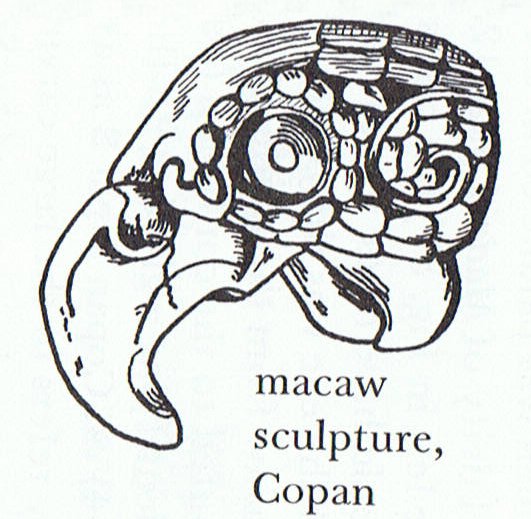 |
|
One of
the characteristics of
7- Macaw was how
there seemed to be a
kind of whirl-pool
around his black eye:
... One
of the liveliest
controversies arose when
G. Elliott Smith (1924)
declared that some ...
representations ...
depicted elephants ...
To back up his position,
Elliott Smith pointed
out that some Indian
representations of
elephants show an
unrealistic spiral near
the mouth, and others
show a circle around the
eye. Both traits are
associated in the Maya
area on such a disputed
representation as that
from Stela B, Copan, but
both also appear on
unmistakable macaws ...
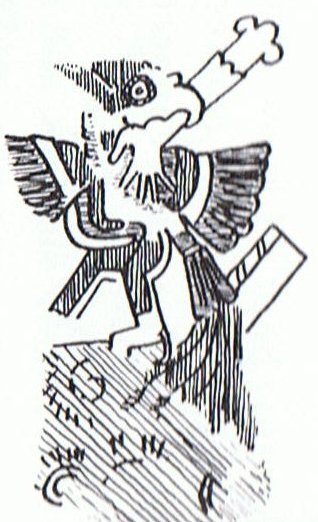
... As if
a three-way argument
over identification as
macaws, turtles, or
elephants were not
ridiculous enough, it
has also been suggested
that the animal shown is
a tapir. No competent
professional has taken
the latter opinion
seriously, but it still
finds occasional
supporters among those
who are unwilling to
believe in trans-Pacific
trading of elephant art
and yet cannot quite
believe Stela B shows
macaws. Elliott Smith
suggested that a
conventionalization
first applied to
elephants was shifted to
macaws by Mayan artists
copying art objects
showing elephants, with
which they were, even in
his view, unfamiliar ...
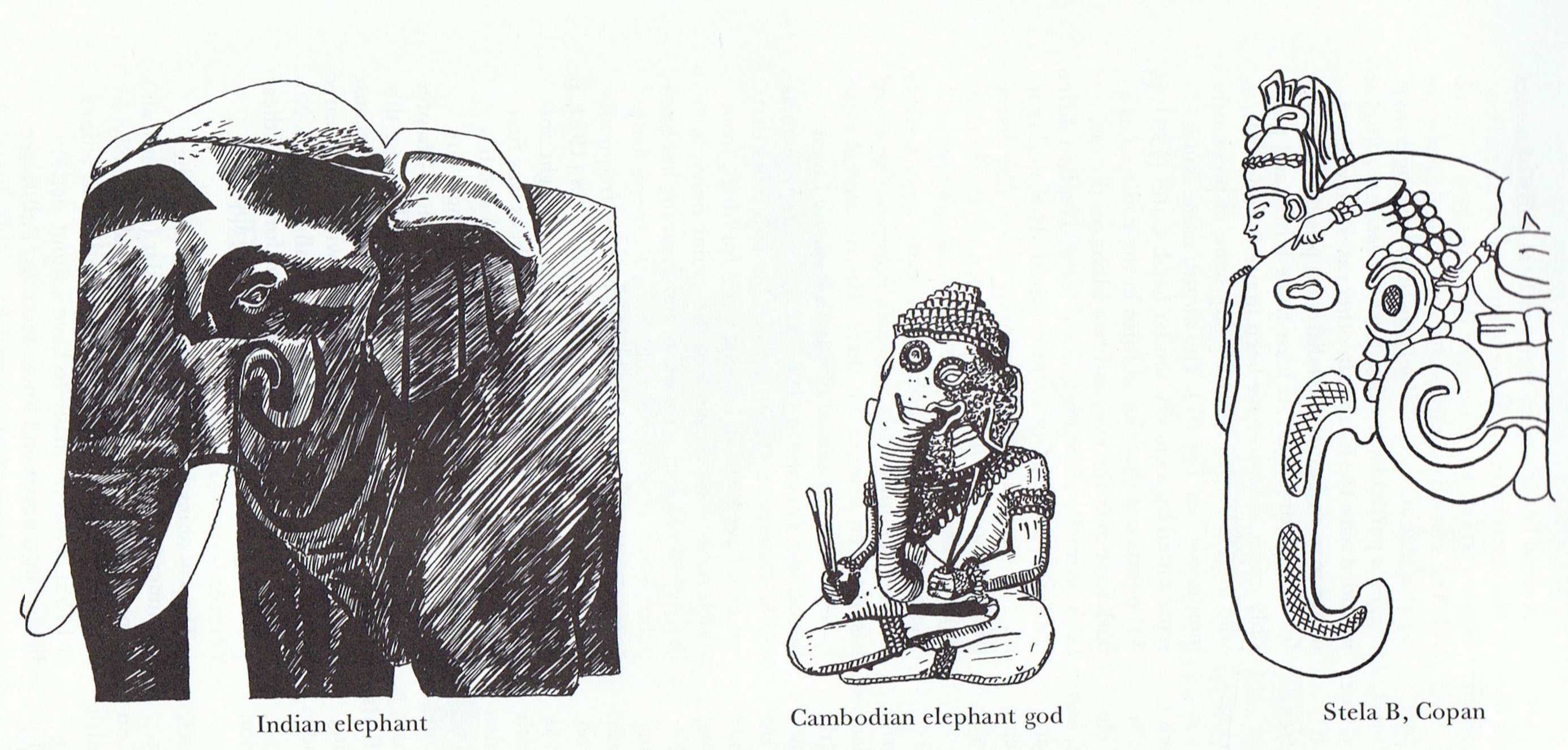
|


















.jpg)















